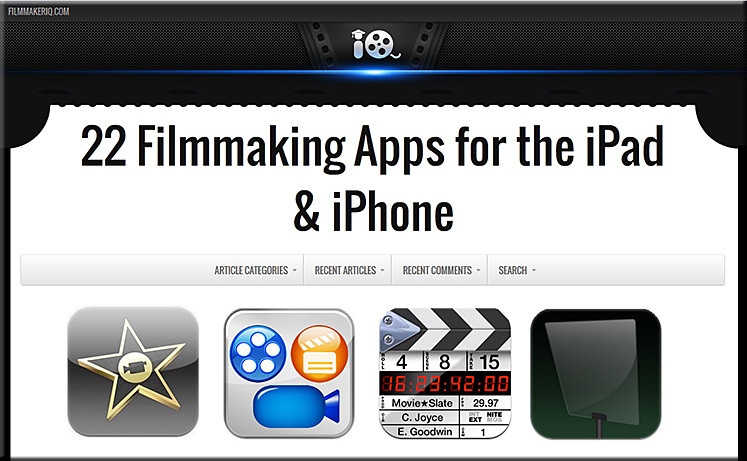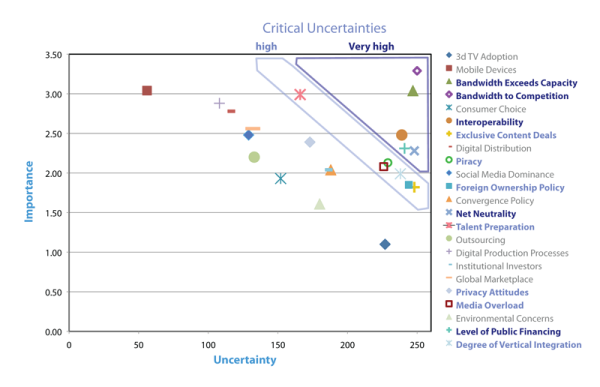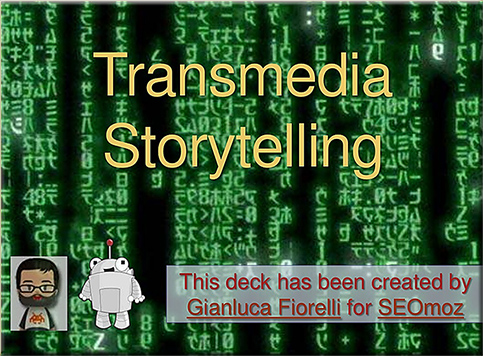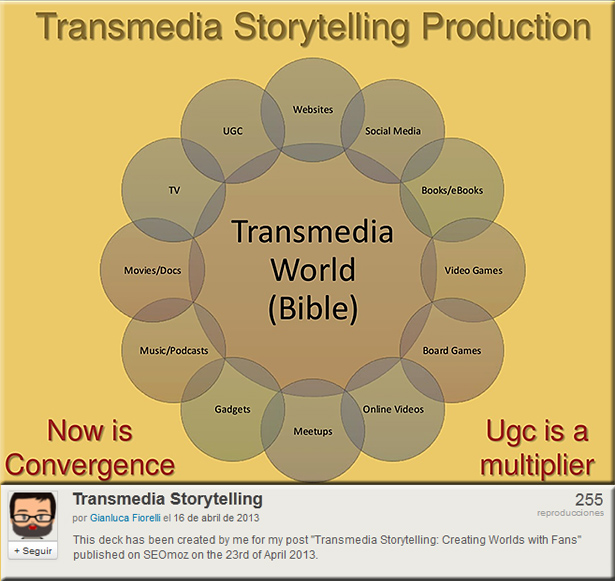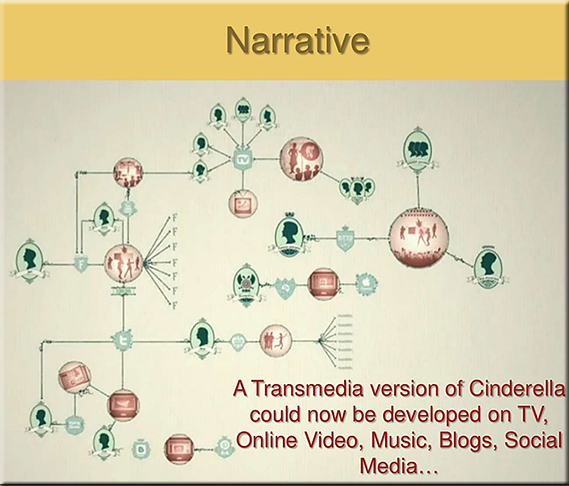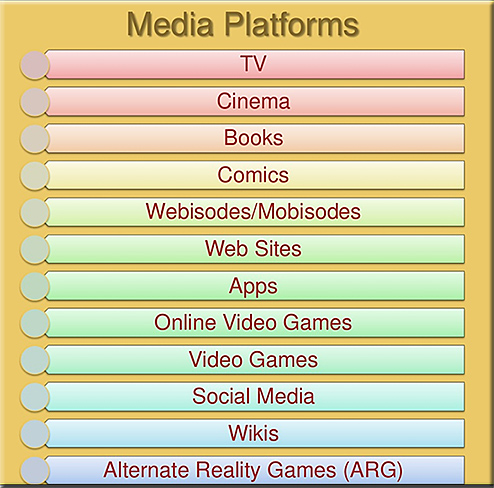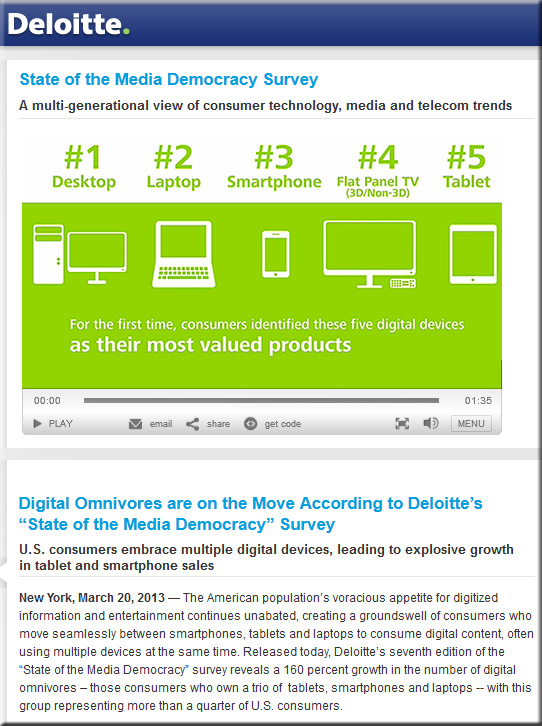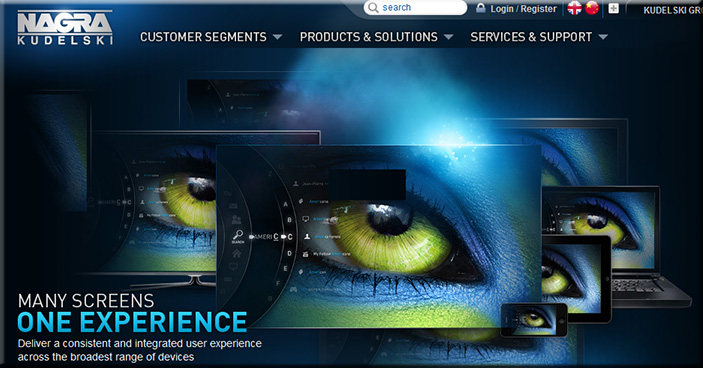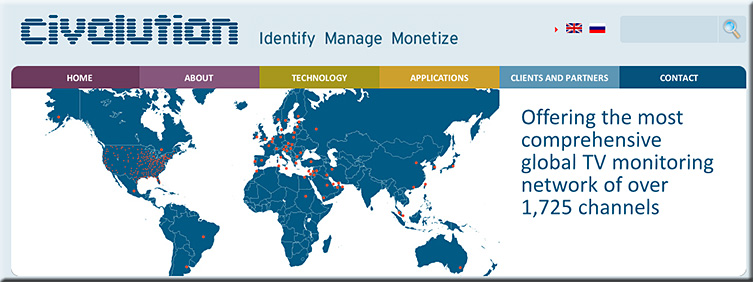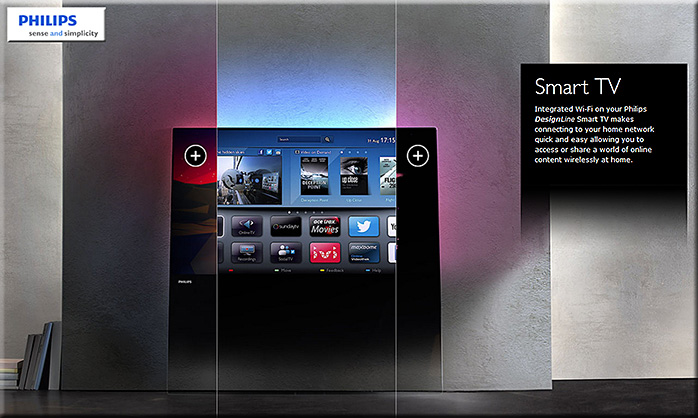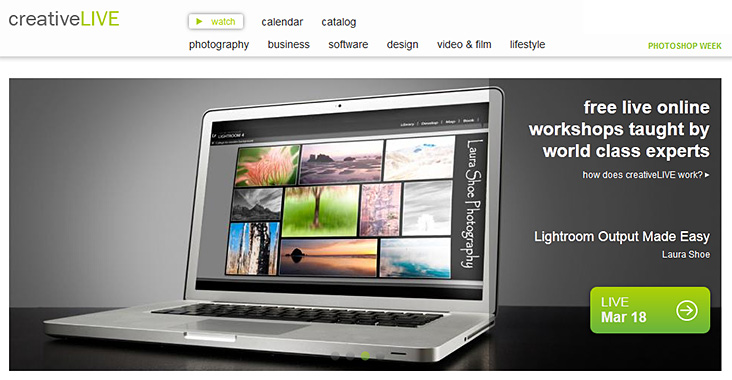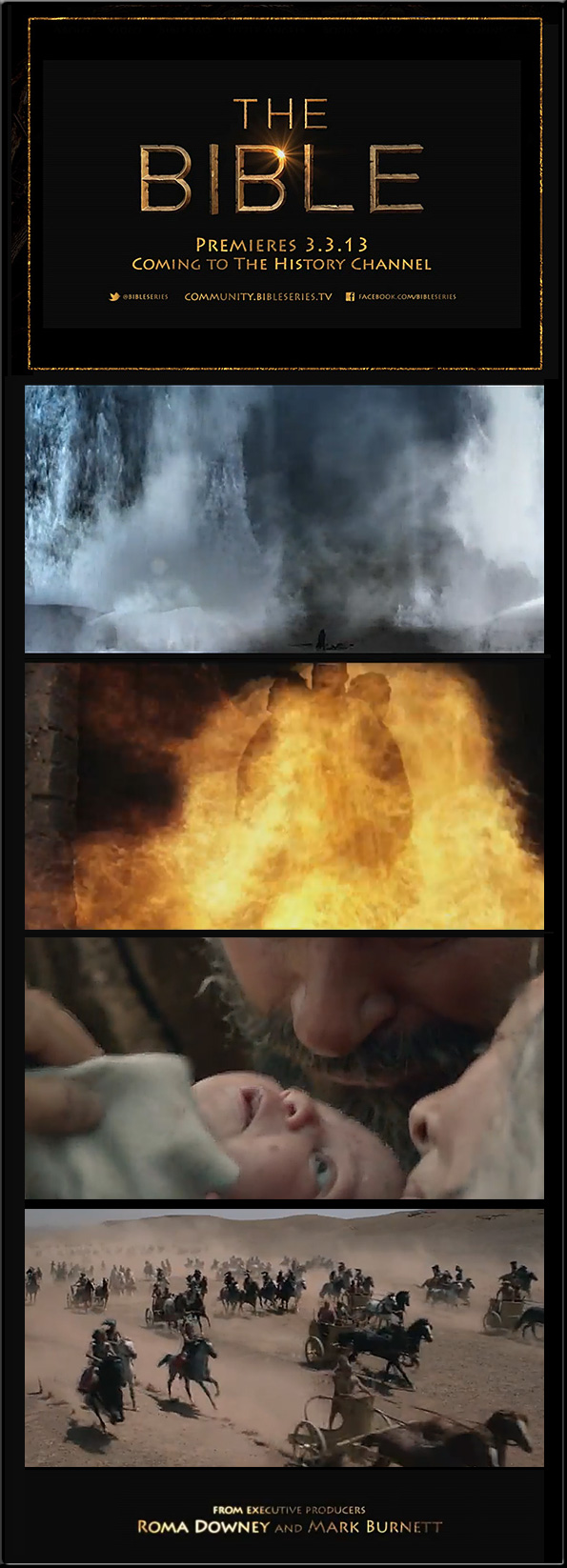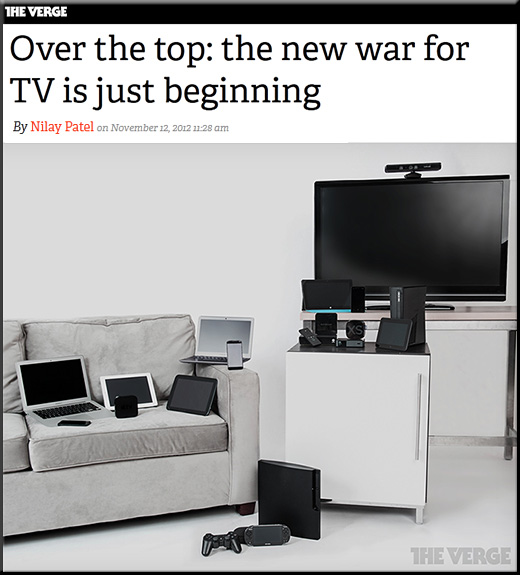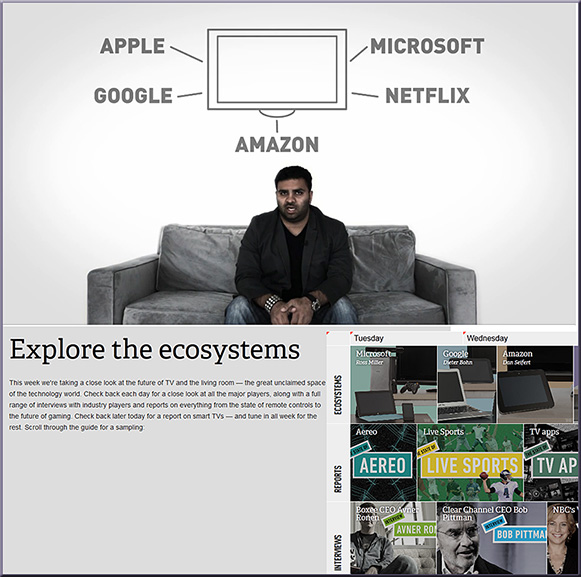The New Storytelling Frontier — from huffingtonpost.ca by Katherine Brodsky
Excerpts (emphasis DSC):
Long gone are the days of static content. Consumers are looking for more and transmedia storytelling offers an increasingly popular approach for creating property-based universes. Transmedia content itself is also evolving. It’s becoming more dynamic, more interactive, offering greater opportunities to engage audiences with creative user-generated content that adds to the storytelling experience. It is becoming more communal.
…
Although traditional models allow for greater control of content, strategies that can engage fans more actively and allow them to express themselves and even contribute to the development of a show, get them more involved and, ultimately, more willing to buy in.
From DSC:
As the use of storytelling is a powerful tool for learning, I can’t help but wonder…
- What might be some creative possibilities arising from the developing world of transmedia that students and/or educational organizations could develop?
- In what ways could we build more interactivity and social networking into our “digital textbooks” and mobile-based applications?
- Would transmedia-based content help maintain interest, engagement, attention?
- Would it help establish longer term memories/recall?
- How might it help build students creativity and foster more experimentation/play/participation?
- What roles might students play? (Writer, videographer, sound designer, actress, programmer, game designer, project manager, entrepreneur, etc.)
- What tools and skills would students need to create their own transmedia-based experiences?
- What new forms of storytelling might evolve from these efforts?
- Could transmedia work its way into blended learning models?
- Are new opportunities for immersing oneself in a particular subject matter becoming more available through transmedia-based experiences?
- Could streams of content be wrapped in transmedia-based experiences?










![The Living [Class] Room -- by Daniel Christian -- July 2012 -- a second device used in conjunction with a Smart/Connected TV](http://danielschristian.com/learning-ecosystems/wp-content/uploads/2012/07/The-Living-Class-Room-Daniel-S-Christian-July-2012.jpg)

